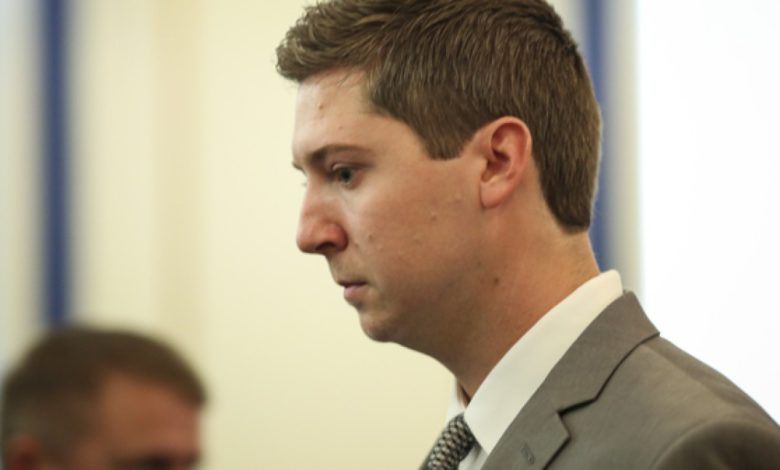
CINCINNATI — Nearly six years after the death of Sam DuBose, the U.S. Department of Justice announced Friday it will not seek federal civil rights violation charges against Ray Tensing, the former University of Cincinnati police officer who fatally shot DuBose during a 2015 traffic stop.
In a news release Friday afternoon, officials said "they have concluded their review of the July 2015 fatal shooting of Samuel DuBose by former University of Cincinnati police officer Raymond Tensing without filing criminal charges against the former officer. The FBI has similarly concluded its investigation."
The release went on to state:
"Federal civil rights statutes – which are written by Congress – require federal authorities to prove beyond a reasonable doubt unanimously to a jury of twelve that a defendant willfully used unreasonable force with the specific intent of violating a victim’s constitutional rights. To establish willfulness beyond a reasonable doubt, federal authorities would be required to prove beyond a reasonable doubt that the former officer acted with the deliberate and specific intent to do something the law forbids. This is one of the highest standards of intent imposed by law."
Civil rights attorney and DuBose family spokesperson Al Gerhardstein said the family is "extremely disappointed."
"The family is crushed about this; they feel very low about this," he said.
Tensing's camp received the news with gratitude.
"Ray and I are both very relieved that it's finally over," said Stew Matthews, the attorney who represented the ex-officer. "It's been a long time coming."
DuBose, a 43-year-old father of 13 children, had been stopped by Tensing on July 19, 2015. He was driving without a front license plate in Mount Auburn, near the University of Cincinnati but not on its campus. Tensing's body camera recording shows what happened next: Tensing asked DuBose for his driver's license, which he said he did not have with him. In the recording, Tensing asks if DuBose's license is suspended and attempts to open the driver's-side door of his car. DuBose closes it, puts the car in drive and accelerates.
Tensing shoots DuBose in the head, killing him. Tensing later claimed he was dragged by the car — a claim disproven by his body camera recording — and feared he would be run over.
The death of DuBose, a Black man who was unarmed when Tensing shot him, sparked a local investigation and protest movement that reflected broader trends in American political life during the latter half of the 2010s. Civil unrest over the police killing of Michael Brown in Ferguson, Missouri, had dominated the news cycle of the previous year; DuBose's case, for many Black Lives Matter advocates, was illustrative of the same problems with policing in the United States.
Unlike many other white officers accused of racially biased killings during that time period, Tensing would be arrested and tried. He was indicted on charges of murder and voluntary manslaughter 10 days after DuBose's death.
But Hamilton County Prosecutor Joe Deters failed to secure a conviction on either charge. He tried twice: After Tensing's first trial in 2016 returned a deadlocked jury, Deters tried him again the following year. That jury failed to reach a verdict, too, and Deters declined to attempt a third round.
“I think Tensing murdered Sam DuBose, so it’s not a pleasant outcome,” Deters told WCPO shortly afterward.
RELATED: Prosecutor Joe Deters challenges Ray Tensing to apologize to Sam DuBose's family
At the time, Deters and others who believed in Tensing's guilt voiced their hope that the Department of Justice would salvage the case by pressing federal charges against him.
The decision not to do so speaks to the feds' awareness of the issues that left both juries deadlocked years ago, legal expert Mark Krumbein said Friday.
Federal cases are about one thing, he continued: "That they can make the case and convict. If they don't do that, they'll feel like they're going to spin their wheels, just like the first two jury trials in Cincinnati. ... I'm sure the Dubose family would say, 'They should've kept trying.' But they have to make a good-faith decision on whether they'd be successful or not. Now we know their decision after six years."
Tensing is no longer a police officer. The University of Cincinnati settled with DuBose's family in 2017 for $4.85 million.








